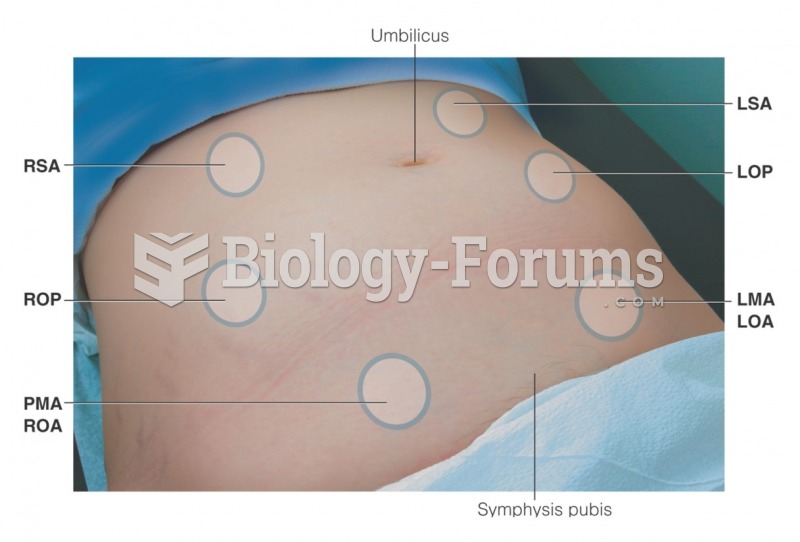This topic contains a solution. Click here to go to the answer
|
|
|
Did you know?
Calcitonin is a naturally occurring hormone. In women who are at least 5 years beyond menopause, it slows bone loss and increases spinal bone density.
Did you know?
In 1844, Charles Goodyear obtained the first patent for a rubber condom.
Did you know?
There are more sensory neurons in the tongue than in any other part of the body.
Did you know?
The National Institutes of Health have supported research into acupuncture. This has shown that acupuncture significantly reduced pain associated with osteoarthritis of the knee, when used as a complement to conventional therapies.
Did you know?
The first documented use of surgical anesthesia in the United States was in Connecticut in 1844.







